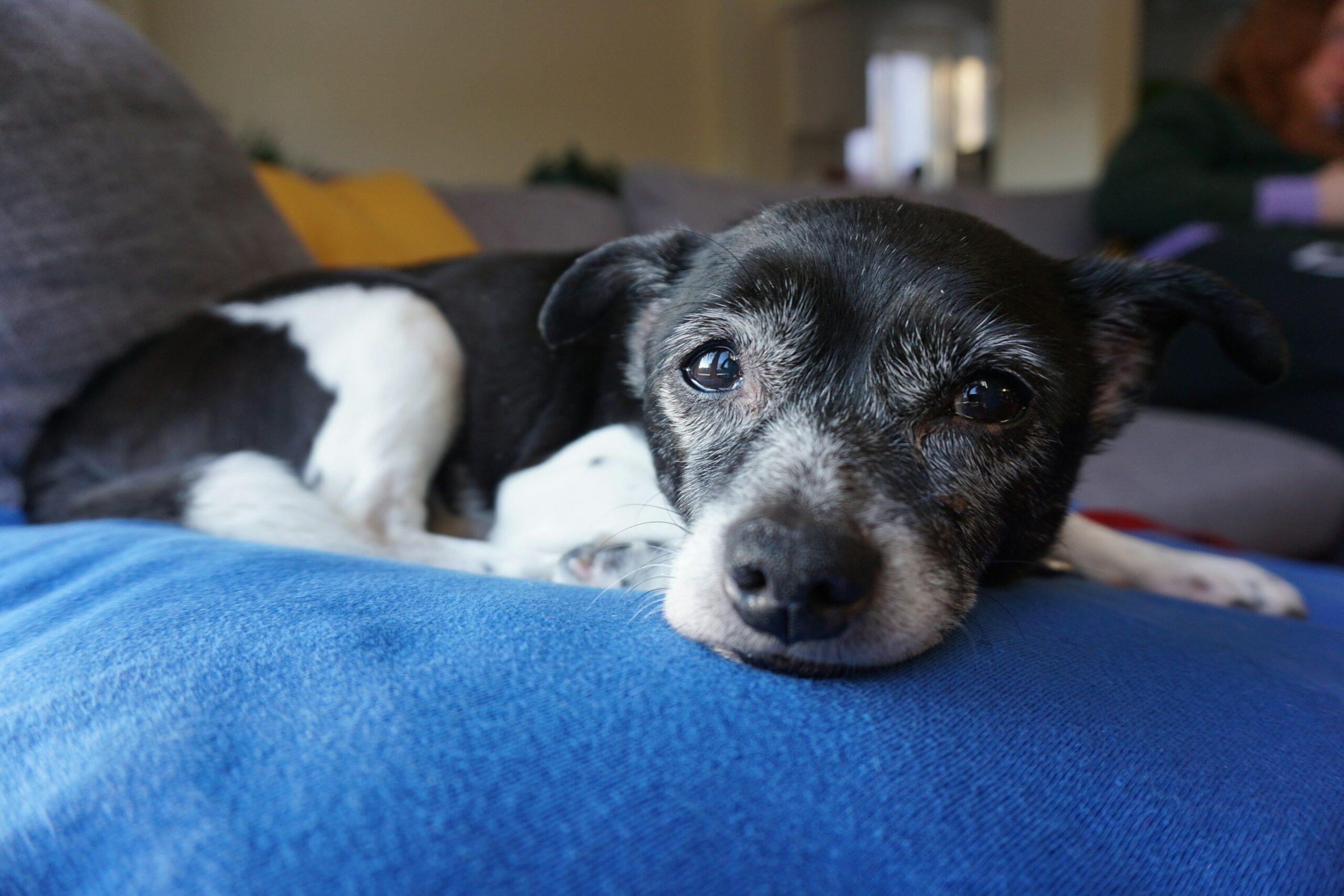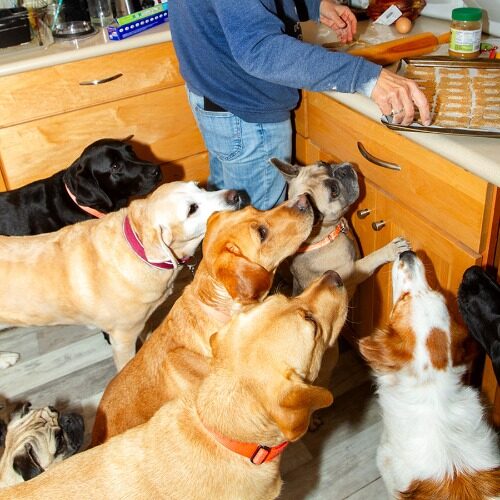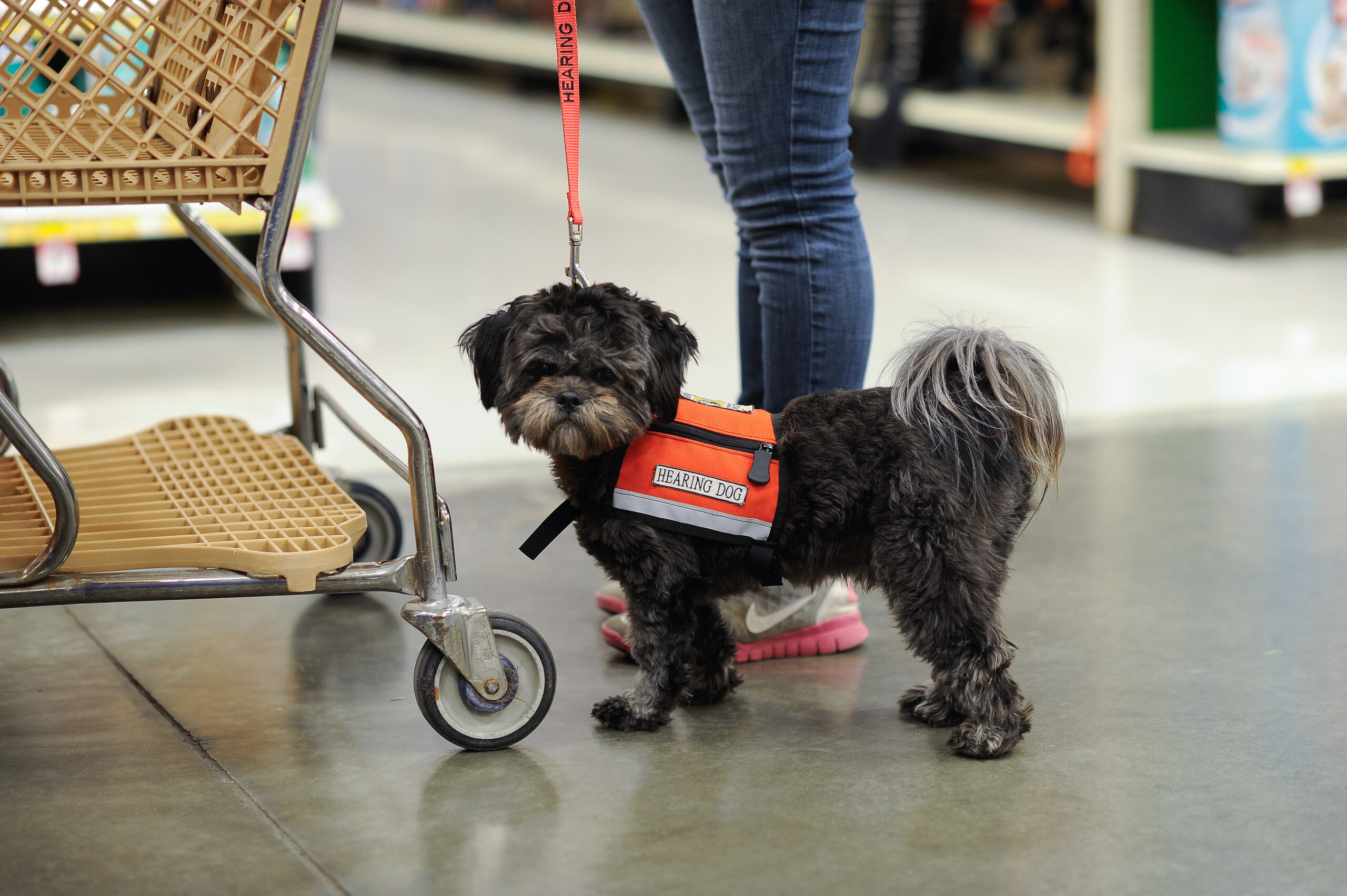
Trainer’s Tips & FAQ
So, you want to adopt a shelter dog?
One of my greatest privileges was adopting my first dog from a humane society. This particular dog was adopted and returned several times by other people before he came into my world. My life was virtually changed overnight.
The lifestyle I lived was no longer an option with this precious living animal looking to me for all his needs. Despite how easy it was to love this dog, my decision to adopt him was not taken lightly. I hope that the information below will help anyone considering adopting a dog to be helpful and valuable. A dog is a big decision but a rewarding one too!
About shelter dogs
Less than 35% of all family dogs will live their lives with their original owners. Dogs are given up by their owners for many reasons. Statistically, many dogs are surrendered to shelters because of owners moving, behavior problems (rooted from puppyhood), and no time to care for them.
A shelter dog is going to carry the same problems that brought him to the shelter into a new home.The problems that were ignored in a shelter dog’s first home will need to be worked through with love, patience and training in his second home.
Thoughtful Consideration
Before deciding on adopting a dog it is wise to ask yourself (and family) why you want a pet. What are your likes and dislikes? Everyone in the home should be in favor of an adoption. Make sure that everyone is ready for the changes an animal will bring into your home. New dogs will need lots of your time and training. Make sure that no one has allergies. Visit friends and family with dogs to determine if an allergy exists.
Finally, look honestly at the following questions:
- Is a dog right for my home?
- Who will be his primary caretaker?
- Can I afford to care for a dog?
- Am I ready to make a 10-15 year commitment to a dog?
- Will I commit to basic training for my dog?
Looking for a dog
Dogs come in all shapes, sizes, coat lengths, colors and dispositions. One area that tends to be overlooked is characteristics. Although many shelter dogs are a mix of breeds, the breed that can be identified from physical features often exhibits some of that breed’s characteristics. For example, a mixed breed dog that has obvious features of a Border Collie may exhibit behavioral tendencies shared among its breed group: the Herding Group. And, more specifically, may reveal characteristics that are identified by that specific breed.
While you consider the characteristics of a dog that you will adopt, examine your lifestyle, living space, and time. If you work 10 hours a day, live in an apartment, and like to read or watch TV in your off time, a Labrador Retriever is probably not the best choice. However, a dog that prefers a more sedate lifestyle, like a Shih Tzu, might be the better option.
On the other hand, if you are an active family with children in the home a Lab might be more appropriate than having a sound or noise sensitive dog.
A toy breed as the Maltese might not be appropriate either because they are small and can easily be stepped or fallen on. Getting a dog on impulse, primarily based on appearance is not the best approach. Shelter staff can be very helpful in guiding you toward the right dog. They may discourage you from certain dogs but encourage you toward others.
children
Children undoubtedly can benefit from sharing in the responsibility of a family dog. If your kids are asking for a dog, get them books about dogs and the care they require so they will know more about them and what is involved in their care. The adults in the home are ultimately responsible for the care of the family dog. Children are too young to be left with this kind of responsibility and it will eventually fall on the shoulders of the adults or the dog will end up in a shelter.
Many people consider adopting a young puppy to grow up with their young child. This may not be a good idea for two reasons; young puppies require a lot of time and care-similar to the time needed for a young child. If you are busy enough with a child(ren), a young puppy is probably not the best choice. The other reason is that very young children can unwittingly hurt a young puppy by falling on it, dropping it, or picking it up inappropriately.
Coming home
It is a very good idea to give yourself a couple of days to devote to helping your dog adjust to his new life. Do not prepare packed days of socializing with friends and outside family. Your new dog will need an opportunity to learn his new surroundings and the people he will live with. Purchase the items you will need for your new dog: toys, supplies and food.
Upon arriving home with your new dog, take your dog first to the yard where he will be allowed to potty before you go inside. A fenced yard is strongly recommended for safety and effective housebreaking. If you have other dogs, the yard is a neutral place to make introductions. However, taking the new dog for a walk with your other dog(s) is a better way to introduce them if you are unsure of how the dogs will get along initially.
Once your dog comes inside the home, decide what the rules will be and stick to them! If you don’t make the rules your dog will and that will lead to behavior problems. To strengthen communication with your dog, take an obedience class. You will not only prevent problems but you will solve problems, too.
Dos & Don’ts
Do:
- Create a routine that your dog can count on everyday.
- Make your dog a family responsibility. Although parents are the main caretakers, children can learn pet responsibility by being given specific duties.
- Include the dog as part of the family. Dogs are pack animals and see your family as part of his pack.
- Give your dog the time and exercise he needs to thrive in your home. Above all love and enjoy the bond with your wonderful new dog!
Don’t:
- Expect your dog to guess at his day. You will have a dog that is both unhappy and insecure.
- Surprise the family with a dog. Adopting a dog requires careful planning and agreement by all family members to be involved in its care.
- Banish your dog to the backyard. A dog that is alone for large periods of time can become bored and will make up his own entertainment, such as digging, barking and chewing.
Suggested reading
- Don’t Shoot the Dog! by Karen Pryor
- Dog Friendly Dog Training by Andrea Arden
- Educating Puppy…and other thoughts on Puppy Preschool by Barb Velasquez
From the Foundation
-

Home Alone Tips for the Anxious Dog
Help your anxious dog deal with time spent HOME ALONE in the house. Most dogs that show signs of stress and anxiety can quickly learn to adapt to time alone. However there are some dogs that have true “separation anxiety”…
-

Peanut Butter Safety for Dogs
Peanut butter has long been a beloved treat for dogs. Its creamy texture and rich flavor make it an irresistible reward during training sessions however, it’s important to understand that not all peanut butter is safe for our dogs. Let’s…
-

What is a Hearing Dog?
A Hearing Dog is a type of Assistance Dogs and sometimes just referred to as a Service Dog. Their role is to assist individuals who have severe to profound bilateral hearing loss. These dogs are trained specifically to alert their…